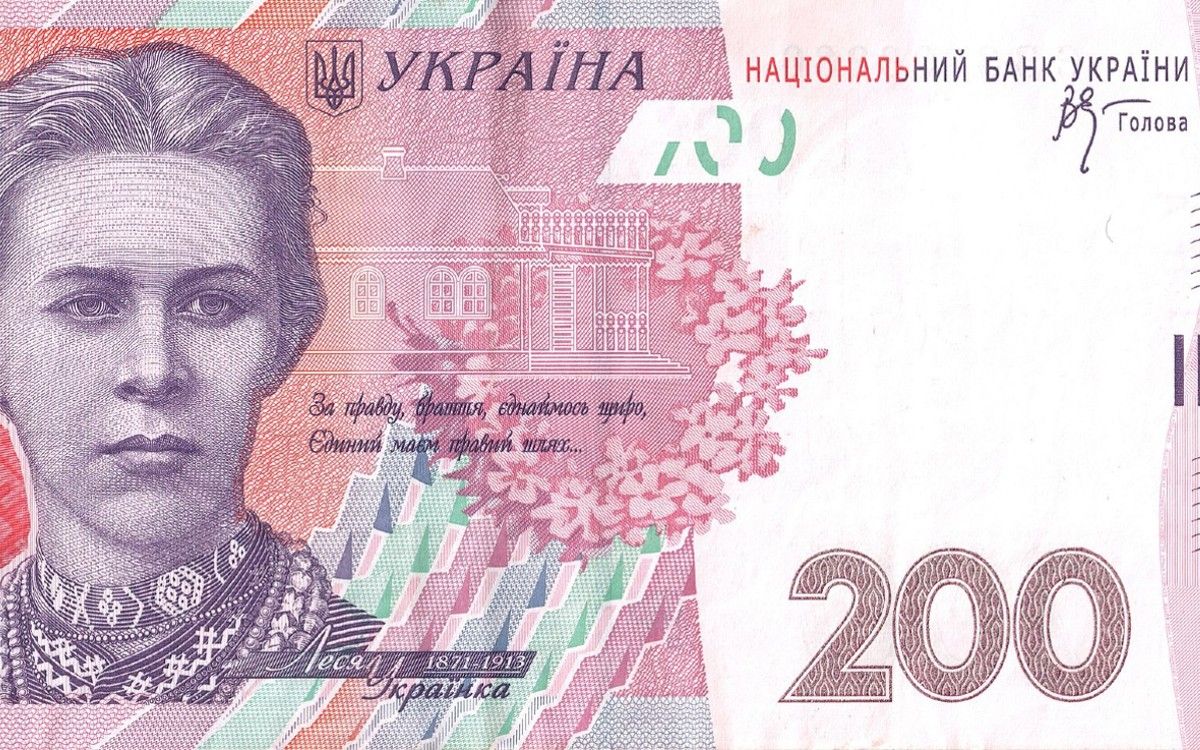Polish Literature & Ukrainian Money

Larysa Petrivna Kosach-Kvitka was born in Novohrad-Volynskyi in 1871. She came from a wealthy landowner family with strong academic, artistic, and social traditions (her mother, Olena Petrivna Kosach, was also a writer and critic, while her father was a lawyer). Lesya’s youth was characterized by a debilitating disease, tuberculosis, which took a toll on her lungs, bones, and kidneys. She also had extensive intellectual and artistic growth—at the age of nine, she published her first poem, “Hope.” She frequently visited health resorts in Poland and other countries, including Egypt, Greece, Georgia, and Italy, even though she was ill at the time.
She may have developed her linguistic abilities and her interest in various cultures as a result of these palliative journeys to hotter, drier locales. She was able to become familiar with the canon of European literature and was well-versed in modern literary life because she was fluent in French, Latin, Greek, Italian, German, and English in addition to her understanding of these other languages.
Visiting Tworki
She released a ground-breaking piece in 1901 titled “Notes on Recent Polish Literature.” The article emerged a little after the deadline since the author had set herself an ambitious job in the forward-thinking St. Petersburg journal Zyzn. Despite her search, she was unable to locate any Ukrainian studies of Polish literature that went beyond basic summaries. In her fully official analysis, she presented claims such as the fact that Polish Romanticism did not distinguish itself from European Romanticism and that, in her view, celebrating it is unjustifiable. She also spoke about Young Poland literature and Positivism literature, exhibiting a deep understanding of the topics. She explained that her piece was just an introduction to further study on Polish literature in a letter to the editor of Zyzn, where she also apologized for the delay in providing the material.
It’s important to note that Lesya Ukrainka had no personal acquaintances with any Polish authors. Through literary allusions and analytical evaluations, she created a virtual connection with artists from the former Polish lands. She did, however, travel to the area; in 1896, she paid a visit to her uncle Oleksander Drahomanov, a physician employed by a psychiatric institution in Tworki, a town close to Warsaw (and the brother of Mykhailo Drahomanov, a literary scholar and ethnologist). This encounter served as inspiration for the prose sketch “City of Sadness,” which reflected on the nature of lunacy and the isolation of the mentally sick. Her debut play, The Blue Rose, features similar themes as well.
Constellations of women
Is it a coincidence that two poems by different authors have the same Latin titles? Perhaps. Contra Spem Spero, a poem by Lesya Ukrainka published in 1890, was most likely influenced by a poem by Maria Konopnicka published six years earlier with the same title. Between the two artists, there were other nodal sites. The poet, playwright, and translator from Ukraine chose the poem “On the Wings of Songs” as the inspiration for her debut collection.
The literary magazine Mir Bozhiy in St. Petersburg encouraged Ukrainka to publish an article in honor of Konopnicka’s 60th birthday in 1902. Unfortunately, the lengthy text with her own translations of the Polish positivist poet’s poems, spanning several dozen pages (‘the work took three weeks and spread over fifty pages of large format,’ she wrote to her sister), was never published because the editors rejected it without providing a reason. Lesya Ukrainka’s archive still contains her translations of Konopnicka’s poetry, but the original work has vanished and is still unlocated.
The subjects they covered, as well as the poetics and writing style of their texts, demonstrate the aesthetic affinities between Konopnicka and Ukrainka. Researchers believe that the two painters had a number of things in common, including a lyrical loftiness in their vocabulary, a frequent use of realistic imagery, an interest in folklore and old motifs, and a dislike of superficial floweriness and individualism. Both writers expressed optimism for the future of common people and the resurrection of democratic values in their texts.
Lesya Ukrainka and Gabriela Zapolska, another Volhynian, share similarities. Writing in the context of literature with a “female signature,” Anna Janicka states, “The works of both writers […] indicate how much Volhynia’s terrain affected their imagination, developed their personality, and marked their way of looking at the world” (namely, created from a female perspective).
Additionally, Janicka acknowledges the contribution of both women writers’ works to the evolution of Polish theater. She portrays Zapolska as an experimenter who liberated drama from convention, while Ukrainka, on the other hand, is an artist who ‘introduced Ukrainian drama to the path of modernity, at the same time embedding it very firmly in the best tradition of European drama’.
Ill child Larysa
Despite her skill in language and symbolism, she did not become well-known in Poland during her lifetime. She was virtually unheard of there in the early years of the 20th century. Just three years before she passed away, Sydor Tverdochlib’s translations of her poems into Polish were published in the Anthology of Contemporary Ukrainian Poets. With time, more people were interested in the works of this exceptional Ukrainian woman. Stanisaw Jerzy Lec and Zuzanna Ginczanka both published translations in the 1940s. The poet and leader of the Ukrainian school of Polish Romanticism, Józef Obodowski, finished translating the magical drama The Forest Song in the summer of 1939. It has been likened to both Shakespeare’s A Midsummer Night’s Dream and Sowacki’s Balladyna.
It’s important to keep in mind that despite the weight of her illness, this “sick girl” showed extraordinary perseverance and persistent commitment, even in popularizing the accomplishments of Polish women artists. She ought to be included in the history of Poland and Ukraine’s mutual ties.





Leave a Reply
You must be logged in to post a comment.